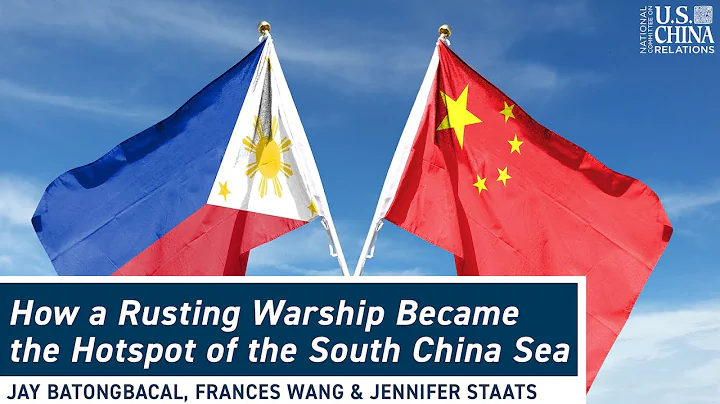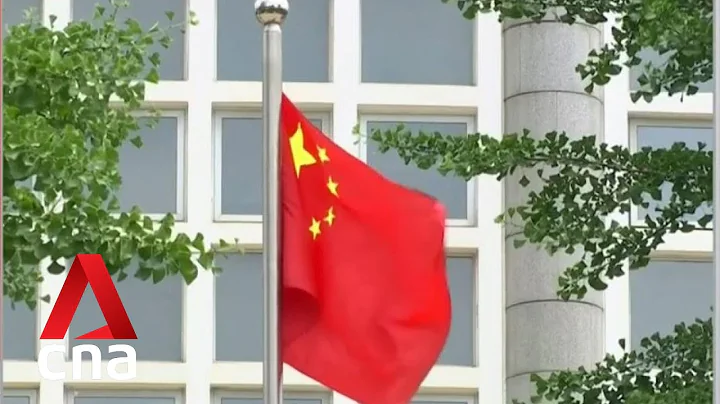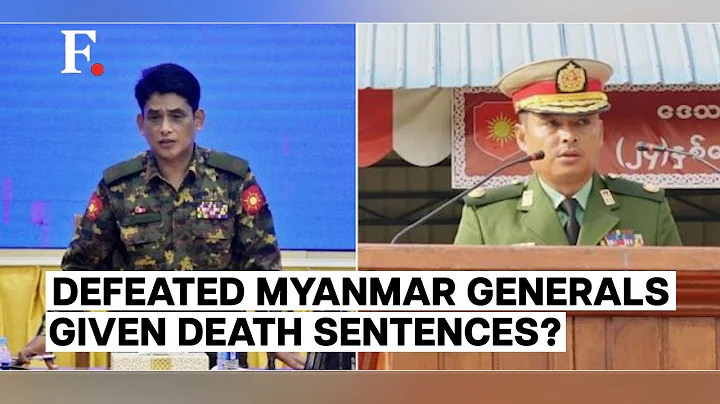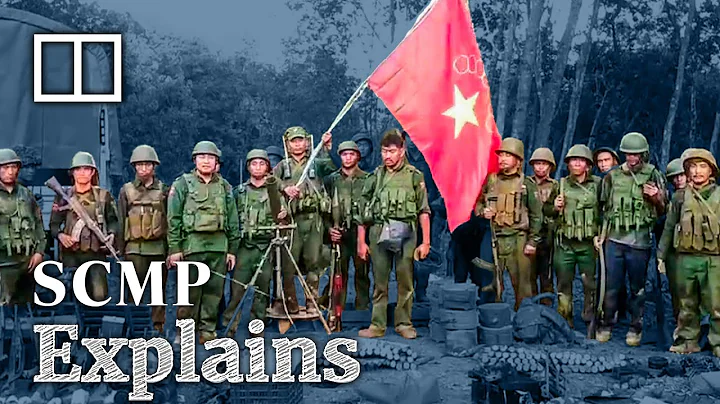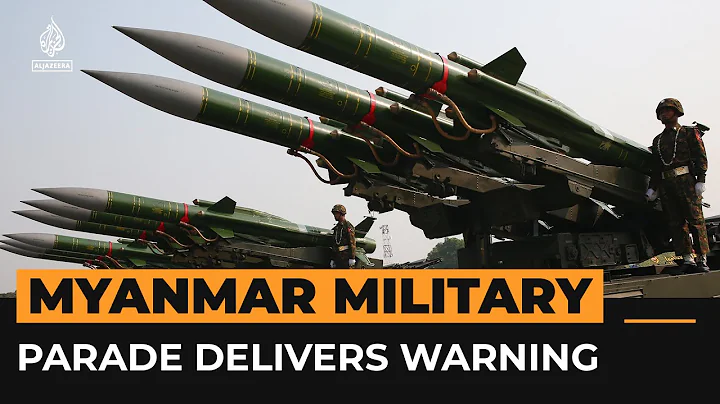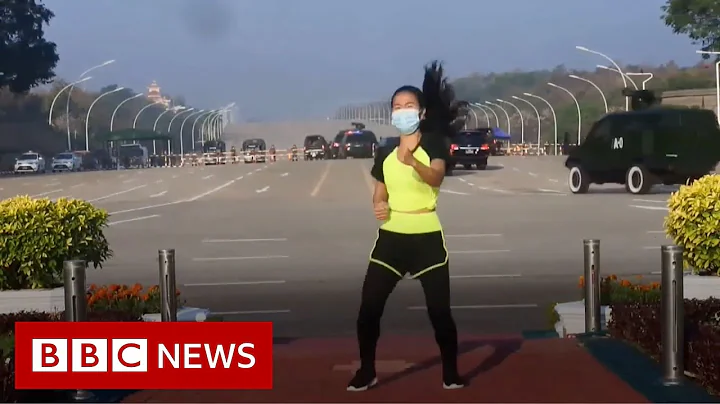Xilaiwang
The just-concluded NATO summit adopted a new version of the "Strategic Concept Document" to provoke China, create group confrontation, and attempt to bring turmoil to the Asia-Pacific region. This will surely arouse opposition and resistance from peace-loving countries and people in the region.

1. How did NATO’s China-related strategy evolve?
NATO In recent years, new trends have frequently emerged in China-related strategies, and now the statement of China in its strategic concept has once again achieved a new breakthrough on the wrong path. On June 29, the "Strategic Concept Document" adopted at the NATO Madrid Summit stated that China poses a "systemic challenge" to NATO.
The last time "NATO" released a strategic concept was in 2010. In the strategic concept report adopted at the NATO summit 10 years ago, it only discussed how to establish a different relationship with Russia. China was not mentioned at that time. The "new strategic concept" released this time will provide guidance for the development of NATO in the next 10 years. However, 10 years later, this "new strategic concept" actually targets China and Russia.
How did NATO’s China-related strategy evolve?
In fact, for a long time, China and NATO did not have much overlap.
In recent years, with the changes in the international environment and the rapid development of China, NATO has gradually realized the challenge of China's influence. In order to solve its own embarrassment, NATO needs to create new enemies. In addition to continuing to regard Russia as an opponent, it has begun to regard Russia as an opponent. Focus on China.
At the NATO London Summit in December 2019, China was included in the agenda for the first time and included in the meeting statement.
After the NATO Foreign Ministers' Meeting in November 2020, NATO released a strategic report titled "NATO 2030" on December 1. The report is 60 pages long and contains 138 specific recommendations. The main contents of the report include that NATO must adapt to an era of strategic confrontation with Russia and China and adapt to the return of geopolitical competition at the military and political levels.
It is worth pointing out that China is an important part of the report. The report recommends the establishment of an advisory body to coordinate Western policies toward China and emphasizes the so-called content of China's activities that may affect Western security. The report stated that due to China's rise and international behavior, China can no longer be simply regarded as an Asian player, and NATO has been slow to respond to this challenge. In the future, NATO will focus more on China.
According to the arrangement of the 2020 NATO Foreign Ministers' Meeting, the NATO Secretary-General will use the report as a basis to make recommendations to NATO leaders at the summit in early 2021. After approval, he will start to formulate a new strategic concept to replace the 2010 NATO Strategic vision.
From February 17 to 18, 2021, at a video conference of defense ministers of NATO member states, how to deal with threats from China and Russia became the main topic of the meeting.
On February 19, 2021, the Secretary-General of NATO delivered a speech at the Munich Security Conference, saying that the rise of China is a decisive issue for the transatlantic community.
On March 12, 2021, the Canadian NATO Association held a forum on "Relationships between NATO and China" to discuss the so-called security threats posed by China.
On June 14, 2021, the leaders of the 30 NATO countries held a one-day summit meeting in Brussels, the capital of Belgium. For the first time in NATO history, China was included in the "Brussels Summit" as a "new threat". Conference Bulletin.
The communiqué stated that "China's growing influence and international policies may bring challenges that we need to respond to together as an alliance." It also stated that "China's ambitions and confident behavior have a negative impact on the rules-based international order and alliances." Security-related fields constitute systemic challenges. "According to statistics, the full text of the 2021 NATO summit communique mentions the word China in 10 places, and China has begun to be officially listed as a systemic security threat to NATO.
Since 2022, NATO Secretary General Stoltenberg has hyped up the threat from China and Russia on multiple occasions, trying to build momentum for the NATO Madrid Summit to be held at the end of June. For example, before the NATO Foreign Ministers' Meeting in April this year, Stoltenberg declared that the relationship between NATO and China would be included in the "new strategic concept" to be approved, and that China and Russia's joint "challenges to the international order" would be taken into account.
NATO Secretary General Stoltenberg said on the eve of this year's NATO summit that a situation like that in 2010 will not happen again today, because although China is not NATO's opponent, China's rise is detrimental to NATO's interests, security and value. challenge.
In this way, NATO gradually regards China as one of the security threats in its strategic concept
2. Be wary of NATO bringing instability to the Asia-Pacific region
As we all know, NATO was originally a product of the Cold War , and today it should lose the meaning of its existence. Historically, NATO focused on the security of the Atlantic region. During the Cold War, NATO had always been a military alliance aimed at confronting the Soviet Union and the Warsaw Pact bloc, and was an important link in transatlantic relations. Today's international situation has long since changed. The legitimacy of NATO has been questioned. The nature of NATO is incompatible with the current trend of world peace and development.
As a product of the Cold War and the world's largest military alliance, NATO has long adhered to outdated security concepts and has long been reduced to a tool for individual countries to maintain hegemony.
The so-called new strategic document released this time does not essentially change the Cold War mentality of creating false enemies and engaging in camp confrontation.
As a product of the Cold War and the world's largest military alliance, NATO has not changed its thinking and practices of creating "enemies" and engaging in camp confrontation 30 years after the end of the Cold War. NATO's "Strategic Concept Document" claims that other countries pose challenges, but it is NATO itself that creates trouble around the world. NATO claims to be a defensive organization and defends the rules-based international order, but it recklessly bypasses the United Nations Security Council and launches wars against sovereign countries, resulting in the death of a large number of civilians and the displacement of tens of millions of people. NATO claims that the defense zone will not break through the North Atlantic , but in recent years it has gone to the Asia-Pacific region to show off its power, trying to copy the routine of bloc confrontation in Europe to the Asia-Pacific.
The U.S. “Indo-Pacific Strategy” is becoming synonymous with group politics, and its real purpose is to attempt to create an “Indo-Pacific version of NATO” and maintain the U.S.-led hegemonic system. The emergence of this new strategic concept indicates that NATO may increase its activities in the Indo-Pacific, especially strengthening cooperation with China's neighbors Japan and South Korea.
Ambassador Zhang Jun, China's Permanent Representative to the United Nations, recently warned at the Security Council that NATO should not use the Ukraine crisis as an excuse to provoke bloc confrontation and a "new Cold War" around the world, and should not look for imaginary enemies in the Asia-Pacific region. , artificially creating conflicts and divisions. China firmly opposes some forces inciting NATO to further extend its tentacles into the Asia-Pacific, causing instability in the region.
3. Never allow historical tragedies to repeat themselves
The transformation and development of NATO after the Cold War requires the search for new enemies. Treating China as a possible threat can find a new reason for its own existence.
On March 24 this year, the spokesperson of our mission to the EU pointed out that as a product of the Cold War and the world's largest military alliance, NATO adheres to the old security concept, continues to expand regions and fields, and engages in camp confrontation using "old Cold War" techniques. We must be highly vigilant and resolutely oppose the "new cold war", which is not in line with the trend of historical development and goes against the wishes of the people of the world.
Never forget that just 23 years ago today, NATO bombs began to fall on Yugoslavia , causing thousands of casualties, including Chinese citizens, and displacing hundreds of thousands of people. The lessons of history cannot be forgotten. NATO should reflect on itself, completely abandon the Cold War mentality, follow the principle of indivisibility of security, and seek to build a balanced, effective and sustainable European security mechanism through dialogue and negotiation.
Yes, it has been 23 years, and the Chinese people have never forgotten the blood debt owed by NATO. Today, NATO's eastward expansion and are actually spreading to Asia and around China.
China has stated many times that NATO still owes the Chinese people a blood debt. The Chinese people will never forget this barbaric atrocity of NATO and will never allow the historical tragedy to repeat itself.
NATO's so-called "strategic concept document" is full of Cold War mentality and ideological prejudice, and willfully attacks and discredits China. China is firmly opposed to this. China will have to pay close attention to this, pay close attention to NATO's strategic adjustments, and is deeply concerned about the policy implications of NATO's so-called "strategic concept" document. China will coordinate its response and fight back resolutely and forcefully.
China pursues an independent foreign policy of peace. It has never initiated a war, never invaded an inch of other countries' land, never interfered in other countries' internal affairs, never exported ideology, and has never engaged in long-arm jurisdiction , unilateral sanctions and economic coercion. China has always upheld the international system with the United Nations at its core, the international order based on international law, and the basic norms of international relations based on the purposes and principles of the United Nations Charter. China promotes the building of a community with a shared future for mankind, promotes high-quality joint construction of the "Belt and Road", proposes global security initiatives and global development initiatives, and provides a large number of public goods for the international community to solve major issues such as peaceful development. China's development is an opportunity for the whole world, not a challenge for anyone.
We urge NATO to stop provoking confrontation along ideological lines. As Foreign Minister Wang Yi explained to Yu Bai, the outgoing head of the EU delegation to China, on June 28, Europe must form a more objective and correct understanding of China’s development direction. In fact, China and Europe are partners, not Opponents, let alone institutional opponents.
